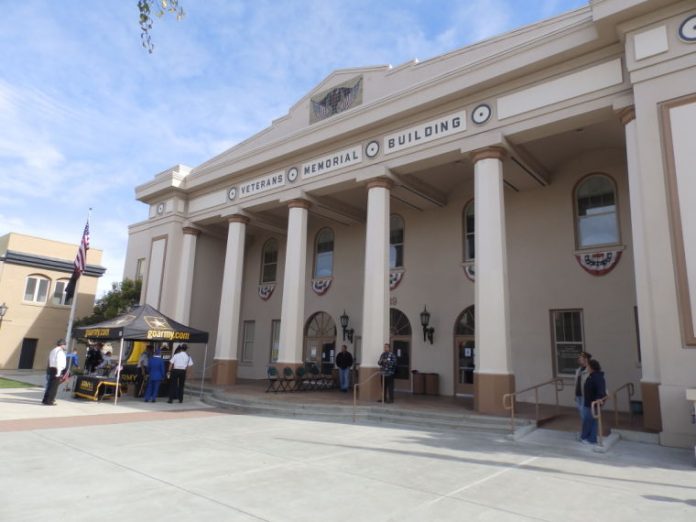Hollister council members Thursday discussed such ideas as permanently extending the 1 percent sales tax, offering early retirement incentives to employees, hiring a purchasing agent and hiking vehicle license fees.
Residents weren’t alerted about any of those talks beforehand, however, because the special meeting agenda excluded specific topics.
Instead, it was up to council members and other officials to bring up matters to consider at the 1 p.m. retreat – a free-flowing format that violated the state’s open meetings law, said Jim Ewert, general counsel for the California Newspaper Publishers Association.
That agenda for the council retreat Thursday at the Veterans Memorial Building was “deficient” in describing specific topics up for discussion as required by the state’s open meetings law, Ewert said.
An attorney with the law firm representing the city denied the claim and contended that government bodies can leave out specific agenda topics if they do not take action. The mayor also denied any wrongdoing and called the meeting a “brainstorming” session.
“These are things that weren’t being discussed before,” Mayor Ignacio Velazquez said.
He said the goal of the meeting was to promote transparency and an open dialogue among council members.
Government bodies must follow the Brown Act overseeing rules for meetings of public agencies. It is an open meetings law that forces proper notice of meeting times and subjects up for discussion or action.
The agenda for the meeting states the sole topic as “City Council Retreat for Goals and Objectives” and goes on to note in the description: “The City Council Members and staff will discuss short and long term strategic plans, … Goals, and Objectives for 2014 and beyond.”
Using that description, residents would have to be “clairvoyant” to surmise before the meeting what might be up for discussion, Ewert said.
“Not only is it open-ended, but it would be deficient,” Ewert said of the agenda.
Brad Sullivan, an attorney with the L&G law firm representing the city, said such agendas have been common for Hollister, San Benito County and other local government bodies he has represented.
“The point is, it’s a workshop retreat,” Sullivan said. “It’s basically the whole purpose is – if anybody wants to bring something up, it’s the forum.”
Ewert pointed to potential problems that might arise with an open-ended agenda. Theoretically, city leaders could talk about personnel matters, acquisitions of property or handling of leftover redevelopment funds.
“They could literally talk about anything and hide it in plain view,” Ewert said. “No one would be the wiser.”
Civil remedies under the law include voiding any actions potentially undertaken by a legislative body.
Sullivan said officials are not being “sneaky.”
“It’s not perfect but it’s not trying to be sneaky,” he said. “We’re trying to accommodate an openness and transparency.”
Look back for more on this story.
BROWN ACT SECTION:
54956. (a) A special meeting may be called at any time by the presiding officer of the legislative body of a local agency, or by a majority of the members of the legislative body, by delivering written notice to each member of the legislative body and to each local newspaper of general circulation and radio or television station requesting notice in writing and posting a notice on the local agency’s Internet Web site, if the local agency has one. The notice shall be delivered personally or by any other means and shall be received at least 24 hours before the time of the meeting as specified in the notice. The call and notice shall specify the time and place of the special meeting and the business to be transacted or discussed. No other business shall be considered at these meetings by the legislative body. The written notice may be dispensed with as to any member who at or prior to the time the meeting convenes files with the clerk or secretary of the legislative body a written waiver of notice. The waiver may be given by telegram. The written notice may also be dispensed with as to any member who is actually present at the meeting at the time it convenes.”










